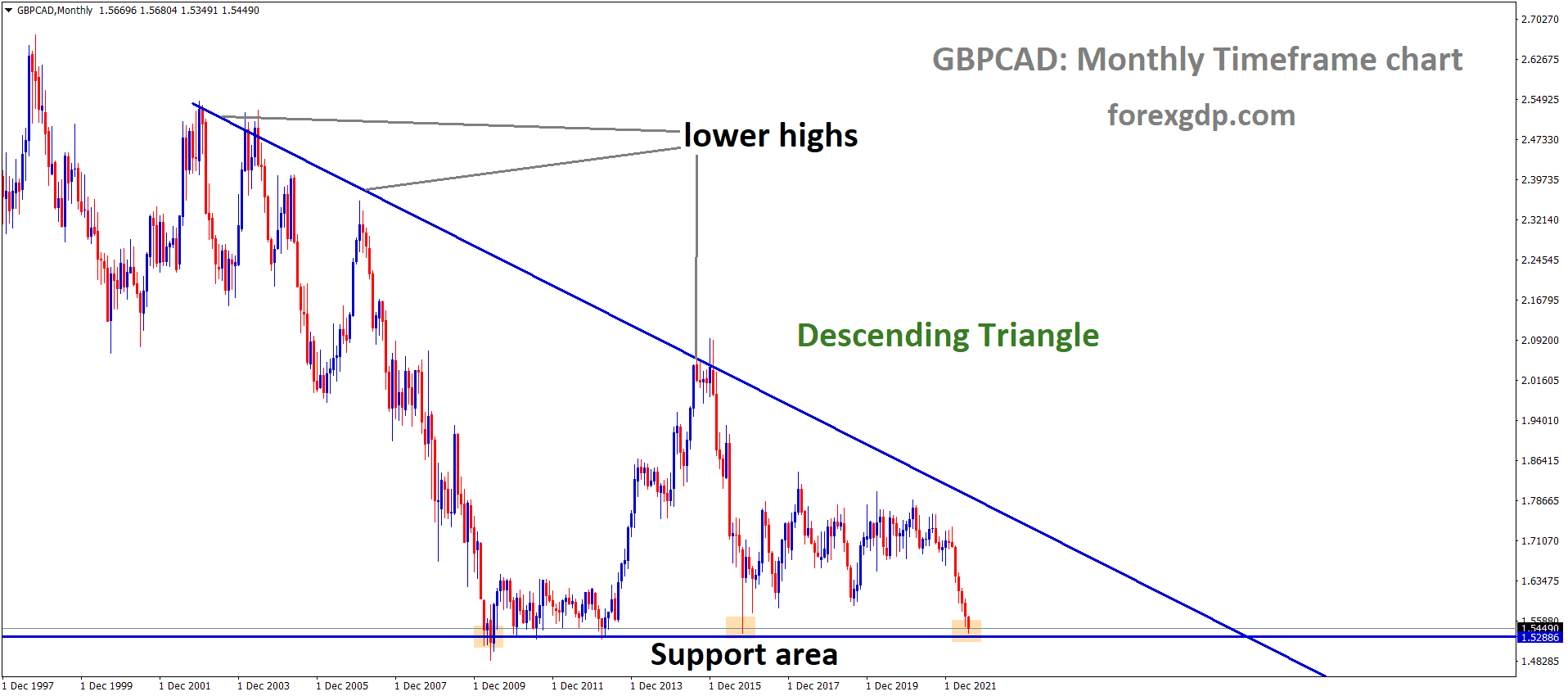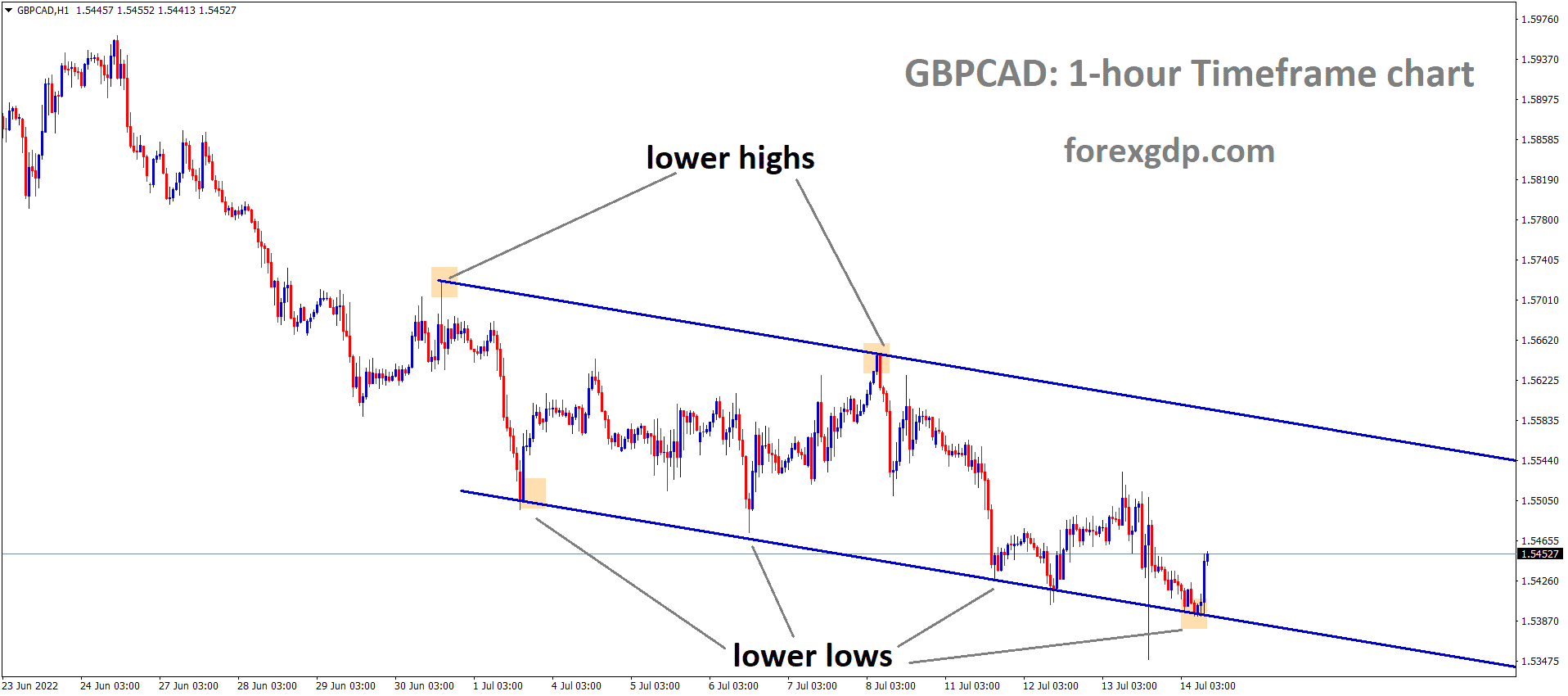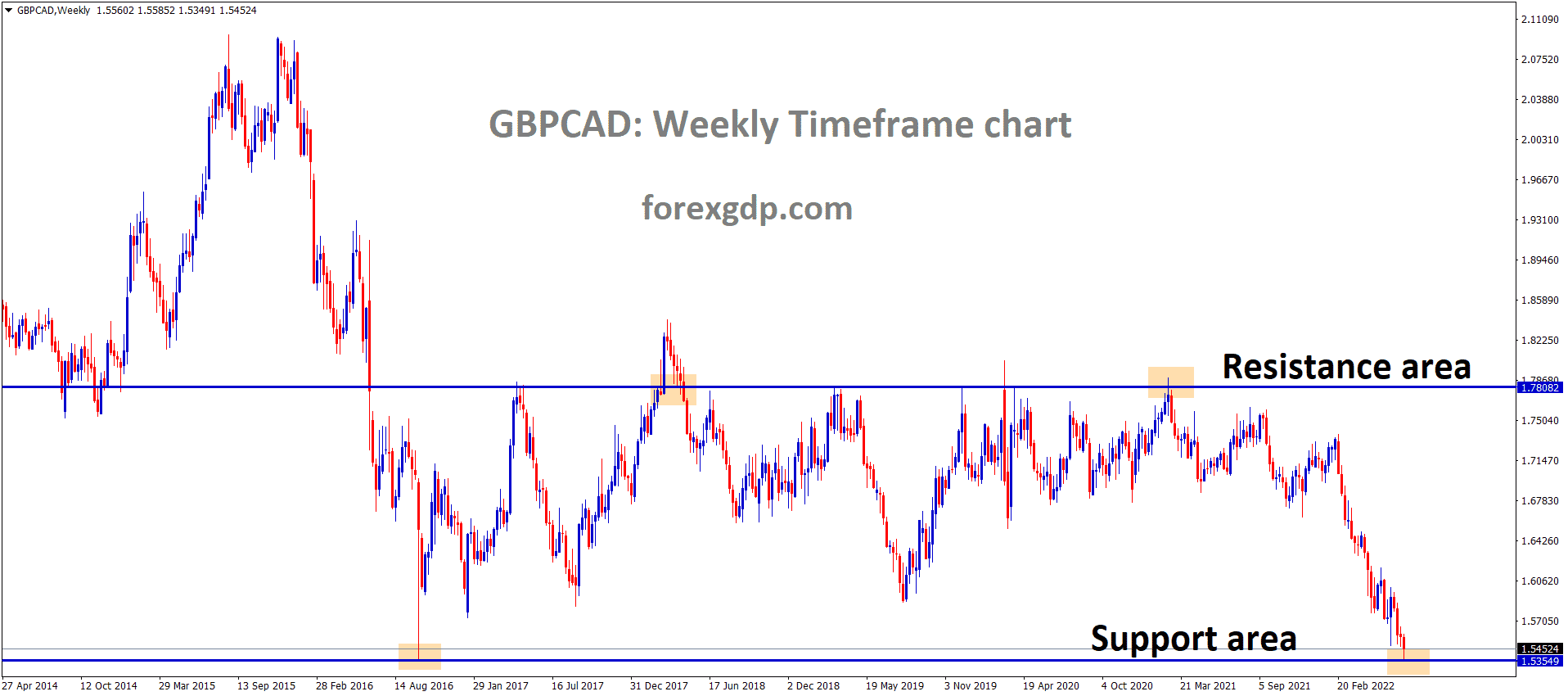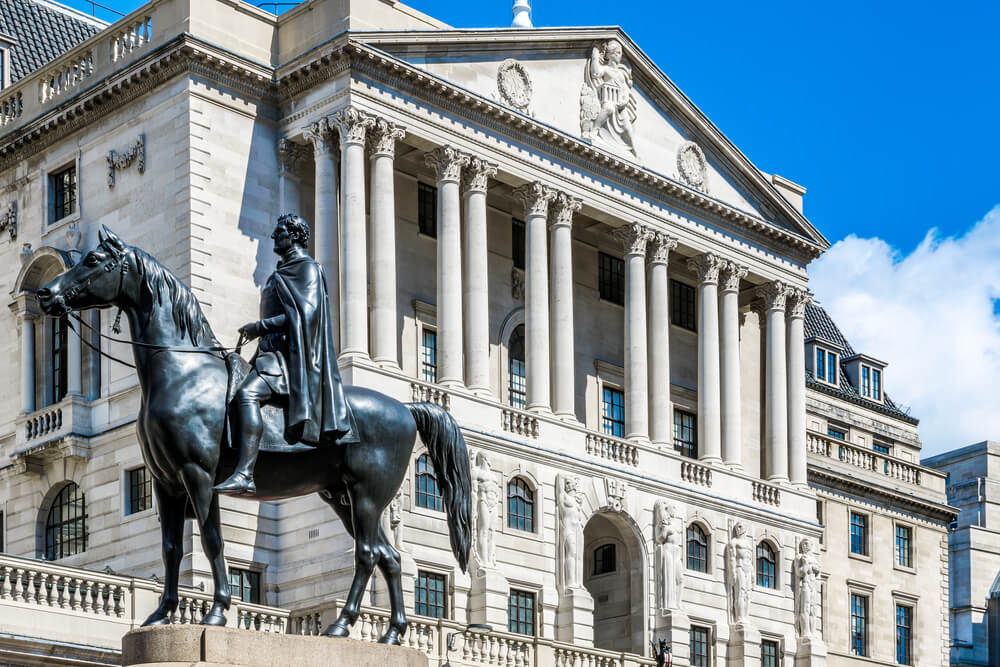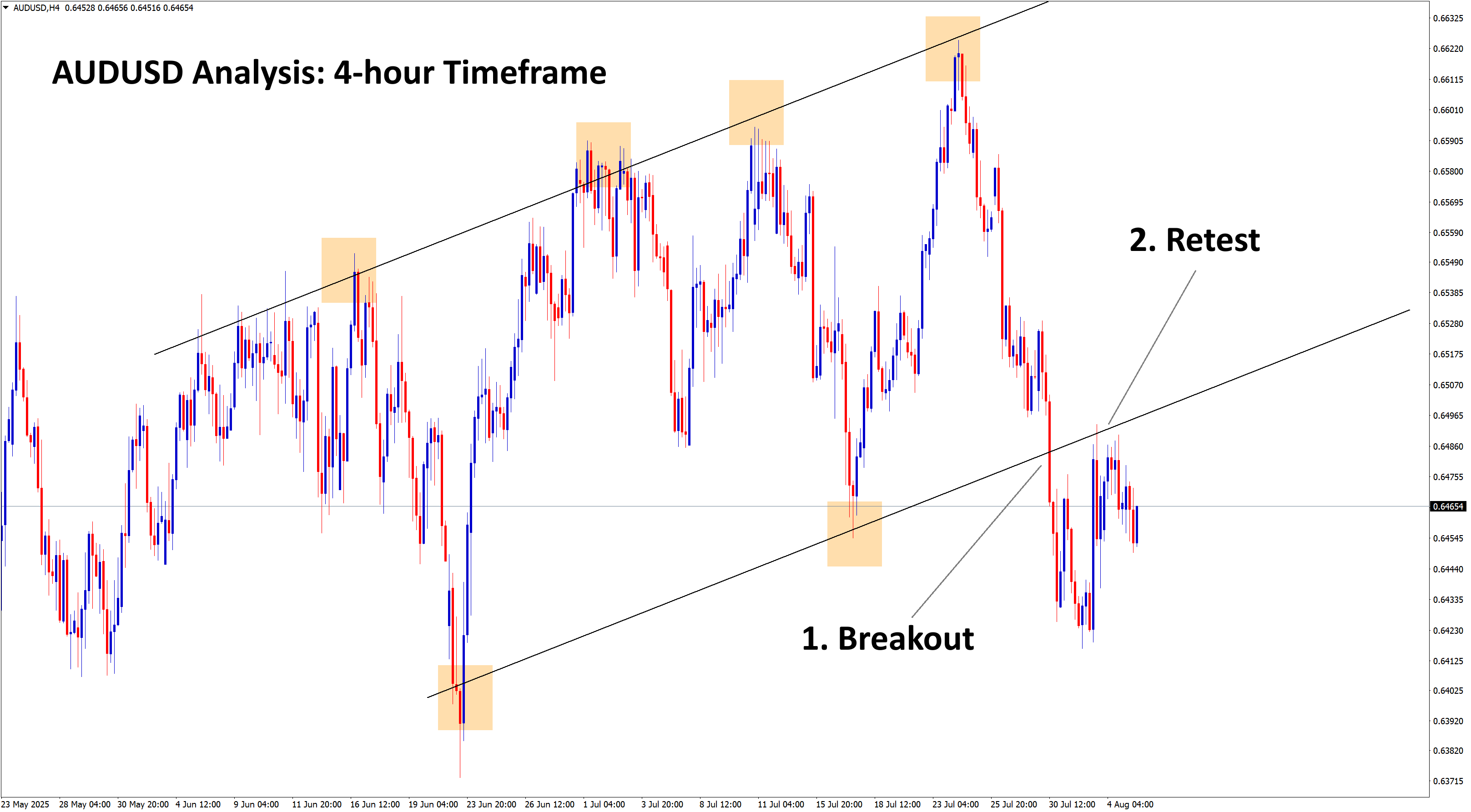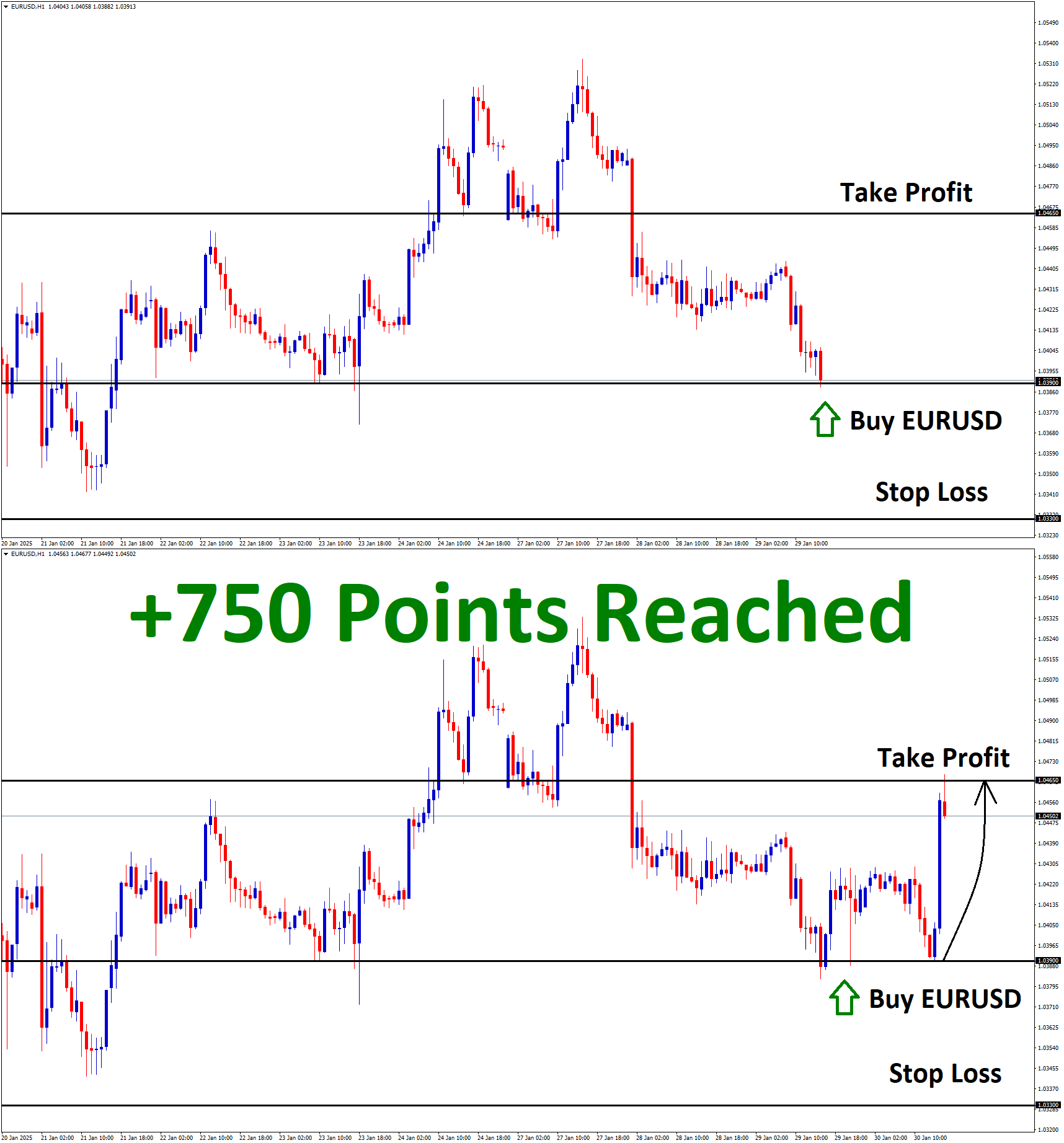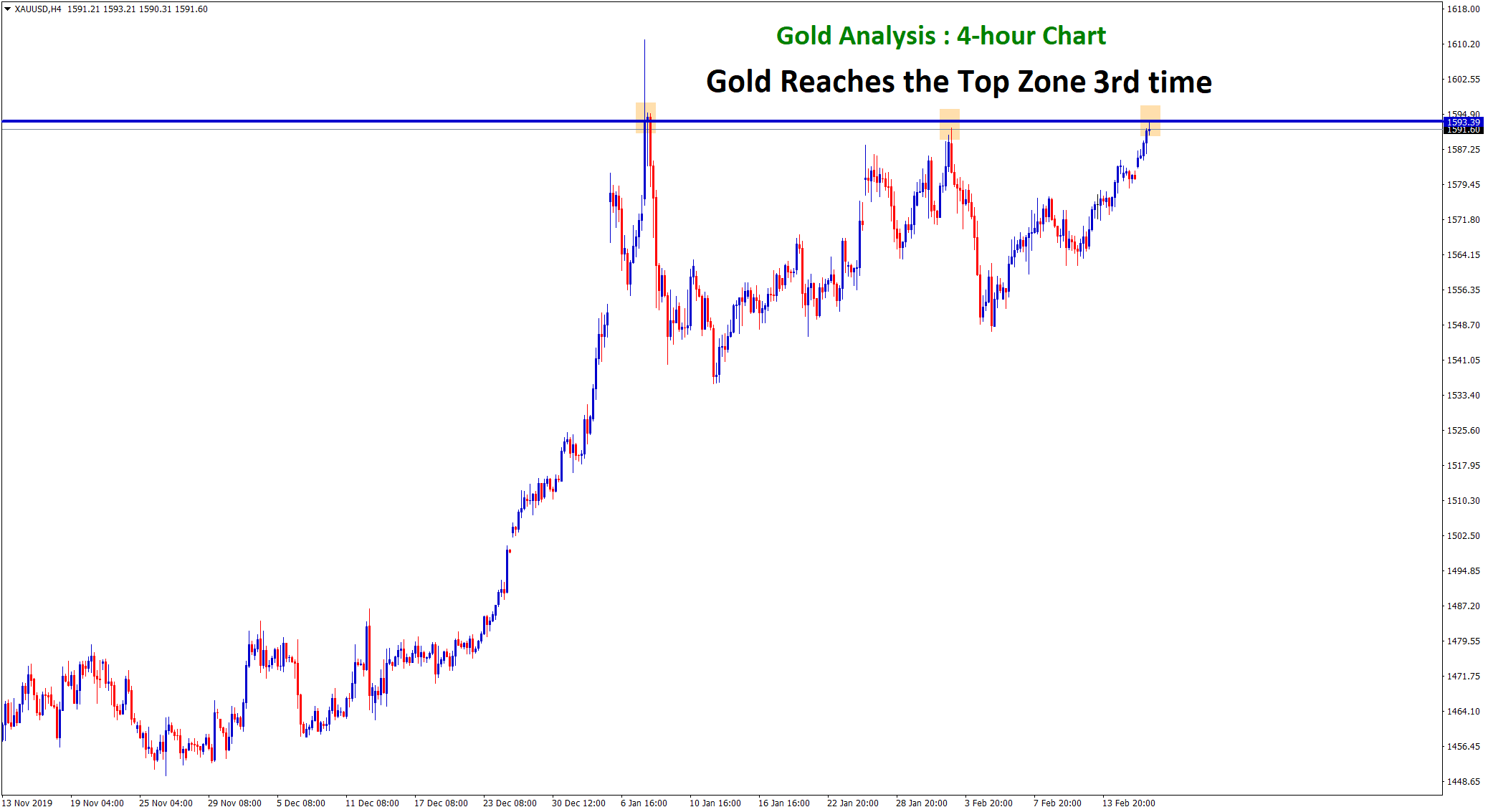GBPCAD is moving in the Descending triangle pattern and the Market has reached the Horizontal support area of the Pattern.
Where Is GBPCAD Today
The GBPCAD charts are quite unstable today as a result of the release of the monetary decision by the BOC and the record-breaking rent crisis occurring in the UK.
GBPCAD is moving in the Descending channel and the market has rebounded from the lower low area of the channel
As a result of these releases, the GBPCAD pair faced a high instability in its value and is now teasing around the 1.54 region. We may continue to see this pair be volatile throughout the day.
CANADA Interest Rate Decision
Early on Wednesday, it was revealed that the Bank of Canada increased its interest rates by 100 basis points or 1%, therefore making it go from 1.5% to 2.5%. They claim this huge increase is to combat inflation which is at its highest in 40 years. The Bank of Canada reveals in a statement, “Today, we raised the policy interest rate by 100 basis points or 1%. An increase of this magnitude at one meeting is very unusual. It reflects very unusual economic circumstances: inflation is nearly 8%—a level not seen in nearly 40 years. First, inflation is too high, and more people are getting more worried that high inflation is here to stay. We cannot let that happen. Restoring price stability—low, stable, and predictable inflation—is paramount.
They further state, “Second, the Canadian economy is overheated. There are shortages of workers and of many goods and services. Demand needs to slow so supply can catch up and price pressures ease. And third, our goal is to get inflation back to its 2% target with a soft landing for the economy. To accomplish that, we are increasing our policy interest rate quickly to prevent high inflation from becoming entrenched. If it does, it will be more painful for the economy—and for Canadians—to get inflation back down. With these important considerations in mind, the Governing Council decided to front-load the path to higher interest rates today. This is our fourth consecutive interest rate increase since March. We know that higher interest rates will add to the difficulties that Canadians are already facing with high inflation. But the strain of higher interest rates in the short term will bring inflation down in the long term. It will get us to the other side of this difficult period and back to normal. Things are not normal right now. After 30 years of low, stable inflation, many Canadians are experiencing the pain of high inflation—and the uncertainty that comes with it—for the first time. Over half of the components in the consumer price index (CPI) basket are rising above 5%. When inflation is this high, it erodes the purchasing power of every Canadian.”
UK Rent Crisis
Ever since the war in Ukraine, several Ukrainians have been seeking shelter in different parts of the globe. There have been many Ukrainians who have moved to the UK as refugees. Originally, the UK government started a program that would allow the Ukrainians to rent a property in the country however, new rules have made this seemingly impossible for them. The UK government now requires proof of earnings and other documentation which is nearly impossible for a refugee to have. This places Ukrainians in a really bad position and they may actually see themselves living as homeless in the UK.
GBPCAD is moving in the Box pattern and the market has reached the horizontal support area of the pattern.
Economists at the Guardian reveal, “Ukrainians being hosted by Britons under the Homes for Ukraine scheme face a “cliff edge” of crumbling support when the end of their placement, and could be blocked from renting privately, refugee organizations have warned. They say stringent checks on prospective tenants that demand proof of earnings and other documentation could prove impossible for many refugees to pass. Some have been asked for evidence of work or tax history stretching back years despite only having moved here since Putin’s invasion. Even those with stable UK jobs and ample savings who have never been in debt have found themselves stonewalled. We need to see more understanding and compassion for the fact that many Ukrainians will not be able to stump up extortionate deposits or be able to provide pay slips from the UK if their job is in their home country.”
BOE Bailey Speech
It was also late this week when Andrew Bailey from the Bank of England came out in a speech at the Official Monetary and Financial Institutions Forum. He reveals, “In view of continuing signs of robust cost and price pressures, including the current tightness of the labor market, and the risk that those pressures become more persistent, the Bank’s Monetary Policy Committee voted to increase Bank Rate by a further 0.25 percentage points at its latest meeting in June. This was the fifth increase in rates since December, taking Bank Rate to 1.25%. In the Minutes of that meeting, the MPC emphasized that it will take the actions necessary to return inflation to the 2% target sustainably in the medium term, in line with its remit. The scale, pace, and timing of any further increases in Bank Rate will reflect the Committee’s assessment of the economic outlook and inflationary pressures.”
He further reveals, “The Committee will be particularly alert to indications of more persistent inflationary pressures and will, if necessary, act forcefully in response. Bringing inflation back down to the 2% target sustainably is our job, no ifs or buts. Monetary policymakers are typically focused on cyclical movements in the economy since monetary policy is often thought to have its most powerful effect on inflation 18-24 months ahead. As cyclical shocks hit the economy, monetary policymakers must analyze incoming data to identify the underlying causes and form a view on their implications for the outlook for GDP and inflation. Adjusting policy in response to the cyclical shocks in the foreground of the macroeconomic picture is therefore a core part of our role. In the background of this picture, however, are some slow-moving but important structural changes, such as trends in population and demographics, technological changes (like increased automation and the rise of intangible capital), and environmental factors (like climate change and the transition to net zero).”

